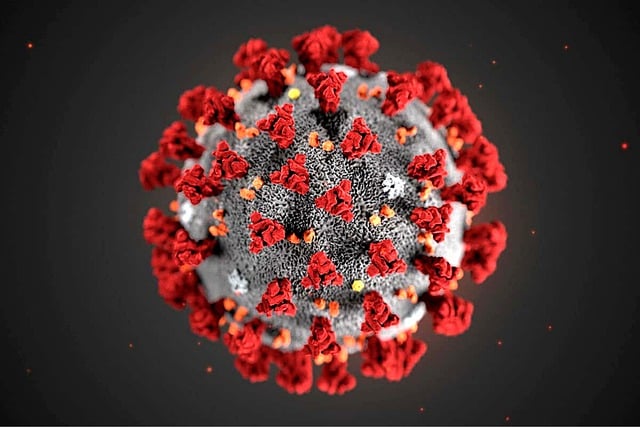Translation services are indispensable for unlocking the potential of UK Public Health Reports, ensuring their data and insights reach all segments of society. These reports, rich in epidemiological, demographic, environmental, and socio-economic information, demand meticulous translation to become actionable knowledge. Accurate translations, sensitive to cultural nuances, enable healthcare professionals, policymakers, and researchers to design targeted interventions, ultimately improving public health outcomes across the UK's diverse landscape, especially during crises. Best practices involve specialized services that contextualize data, use clear language, and incorporate visuals, along with standardized report formats in multiple languages from the outset.
In the realm of public health, accurate and accessible reporting is paramount for informed decision-making by UK authorities. However, navigating complex data landscapes presents challenges in translating critical insights into actionable policies. This article explores the vital role of translation services in demystifying UK public health reports. From understanding data nuances to ensuring cultural sensitivity, we delve into strategies that enhance report accessibility, ultimately empowering evidence-based policy formation and improving public health outcomes through effective translation services.
- Understanding the Complexity of Public Health Data
- The Role of Translation Services in Accessing Information
- Challenges in Interpreting UK Public Health Reports
- Ensuring Accuracy and Cultural Sensitivity in Translation
- Benefits of Effective Translation for Policy Making
- Best Practices for Improving Report Accessibility
Understanding the Complexity of Public Health Data

Public health reports, while rich in data and insights, present a complex landscape that requires careful navigation. These reports encompass a vast array of information, from epidemiological trends to demographic shifts, environmental factors, and socio-economic influences. Each piece of data is crucial for understanding population health but must be interpreted within the specific context of time, location, and cultural nuances.
The challenge lies in translating this intricate web of information into actionable insights that UK authorities can effectively use. Translation services play a pivotal role here, ensuring that specialized knowledge is accessible to decision-makers. By bridging the gap between raw data and understandable reports, these services enable authorities to make informed decisions, develop targeted interventions, and ultimately improve public health outcomes across the nation.
The Role of Translation Services in Accessing Information

In an era where information is power, especially in the realm of public health, ensuring that critical data is accessible and understandable is paramount. Translation services play a pivotal role in facilitating this process for UK authorities. When it comes to public health reports, these services are essential tools to bridge the gap between diverse linguistic communities, enabling effective communication of vital insights and recommendations.
By providing accurate and culturally sensitive translations, these services enhance the reach and impact of UK Public Health Reports. This is particularly important given the diverse demographic makeup of the country, where a significant portion of the population speaks languages other than English. Translation ensures that all segments of society can access information related to their health, participate in public health initiatives, and make informed decisions.
Challenges in Interpreting UK Public Health Reports

Interpretation and understanding public health reports can be challenging, especially when dealing with complex data from various sources. The UK’s diverse population and healthcare system contribute to this complexity, making accurate translation an essential aspect for effective communication. When these reports are not effectively translated, there is a risk of misinterpretation, leading to potential discrepancies in policy decisions and response strategies.
Translation services play a pivotal role in ensuring that public health data is accessible and actionable for UK authorities. These services require specialized knowledge of both the source language(s) and medical terminology to accurately convey critical information. Effective translation enables healthcare professionals, policymakers, and researchers to gain insightful knowledge from these reports, fostering informed decision-making and ultimately improving public health outcomes across the nation.
Ensuring Accuracy and Cultural Sensitivity in Translation

Ensuring accuracy and cultural sensitivity in translation is paramount when dealing with public health reports, especially for UK authorities aiming to convey critical information to diverse populations. Professional translation services play a vital role here, as they can provide precise interpretations that adapt to the nuances of different cultures and languages.
Cultural sensitivity involves not just translating words but understanding the context, idioms, and metaphors within the original report. Skilled translators are trained to capture these subtleties, ensuring the translated text resonates with readers from various ethnic backgrounds, thereby enhancing the effectiveness of public health initiatives. For instance, when translating health guidelines or awareness campaigns, it’s crucial to convey messages in a culturally appropriate manner to foster trust and engagement among diverse communities within the UK.
Benefits of Effective Translation for Policy Making

Effective translation of public health reports is invaluable for UK authorities, as it ensures that critical information reaches every corner of society. When data is accurately translated into accessible languages, policymakers gain a comprehensive understanding of diverse communities’ unique needs and challenges. This, in turn, enables them to make informed decisions tailored to specific regions, cultures, and linguistic backgrounds.
Translation services play a pivotal role in bridging the gap between complex scientific reports and actionable policy. By converting these reports into easily understandable formats, they facilitate the rapid dissemination of knowledge, which is crucial for public health crises. Moreover, it encourages community engagement and participation in decision-making processes, fostering trust and collaboration between authorities and diverse populations.
Best Practices for Improving Report Accessibility

Ensuring that public health reports are accessible to all is paramount for effective communication and decision-making within UK authorities. One of the key best practices to enhance accessibility involves translation services tailored specifically for this domain. These services should not only translate but also contextualize data, ensuring reports resonate with diverse audiences across different linguistic and cultural backgrounds.
Standardizing report formats, utilizing clear and concise language, and incorporating visual aids can further improve accessibility. Making original reports available in multiple languages from the outset reduces the need for subsequent translations, saves time, and enhances the accuracy of information dissemination. This approach is particularly crucial when addressing health crises that demand swift and coordinated responses from various UK public health bodies.
Effective translation services play a pivotal role in ensuring that UK public health reports are accessible and understandable to all stakeholders, from government authorities to healthcare professionals. By overcoming language barriers and cultural differences, these services enhance the quality of data analysis and decision-making processes. This is particularly crucial for policy-makers aiming to develop evidence-based strategies that address the diverse needs of the UK population. To improve accessibility further, best practices should focus on accuracy, cultural sensitivity, and the adoption of innovative technologies to streamline translation workflows. By doing so, public health reports can become powerful tools in driving positive change throughout the nation.
